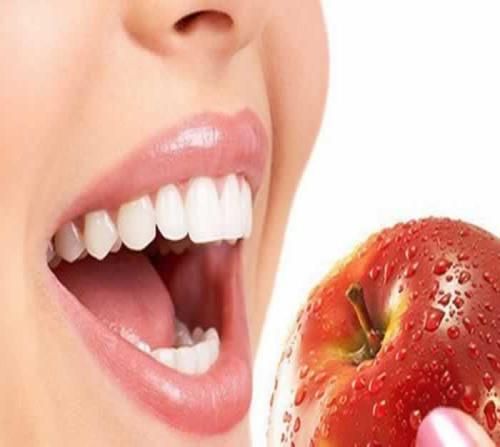|
The poorest people in the UK have up to eight fewer teeth than the richest people by the time they are 70, according to the results of a study released in the Journal of Dental Health today.
根据《口腔健康》杂志发布的一项最新研究,到70岁的时候,最穷的人比最富有的人少8颗牙齿。 The study, carried out by researchers at Newcastle University, Newcastle upon Tyne NHS Foundation Trust, UCL and the National Centre of Social Research was aimed at showing the link between socioeconomic status and oral health。 这项研究室由英国纽卡斯尔大学、纽卡斯尔NHS信托基金会、伦敦大学学院和英国国家社会研究中心开展,旨在告诉大家社会经济状况和口腔健康之间的联系。 More than 6,000 people aged 21 and over from all income groups and regions of the UK were involved in the study, which found that dental health was substantially worse among the poorest 20% of society compared with the richest. Those with lower incomes, lower occupational class, higher deprivation and lower educational attainment were shown to generally have the worst clinical outcomes, including more tooth decay, gum disease and tooth gaps。 6000多名来自各收入群体和英国各地区的21岁以上的人参与了这项研究。研究发现其中发现社会中20%的最贫困人口的牙齿健康状况比最富有人群差的多。那些收入较低,职业阶层较低,较贫困和受教育程度较低的群体临床结果一般都不容乐观,包括更多的蛀牙,牙龈疾病和牙齿间有间隙。 The study also found that for those over 65 years old, the least wealthy had an average of eight fewer teeth than those from the richest echelons of society。 研究还发现,65岁以上、来自最贫穷阶层的人比最富有阶层平均少八颗牙齿。 According to John Wildman, professor of health economics at Newcastle University Business School, the principal investigator on the ESRC study, the results of the study are important because oral health is a significant component of general health and wellbeing. “Oral health contributes hugely to everyday wellbeing and addressing these inequalities may result in considerable improvements in quality of life for large numbers of individuals,” he said. John Wildman是纽卡斯尔大学商学院[微博]卫生经济学教授,也是经济与社会研究委员会的项目负责人。他表示,这项研究结果意义重大,因为口腔健康是全身健康和幸福的重要组成部分。“口腔健康大大有助于每天的幸福,解决这些不平等现象会大幅度提高相当多一部分人的生活质量。” Professor Jimmy Steele CBE, head of the dental school at Newcastle University, and lead author said: “It’s probably not a big surprise that poorer people have worse dental health than the richest, but the surprise is just how big the differences can be and how it affects people。” 纽卡斯尔大学口腔学院院长以及文章的第一作者Jimmy Steele爵士:“穷人的口腔健康比富人更糟糕可能并不奇怪,但出人意料的是差距这么大,影响这么大。” Whilst Steele admits it is difficult to identify which specific factors are driving each of the differences seen in the study, he says that “there is probably a mix of reasons and it is not just about, for example, the availability of treatment”。 虽然Steele承认难以确定是哪些特定因素造成研究中的这些差异,但是他说:“原因可能有很多,不只是治疗的有效性。” According to Dr Georgios Tsakos, senior lecturer at the Department of Epidemiology and Public Health at UCL, one of the most important things revealed from the study was the link between educational attainment and perceptions about oral health and quality of life. “This has profound implications for policy as intervening in earlier life could have a significant long term effect on oral health,” she said。 伦敦大学学院流行病和公共卫生系高级讲师Georgios Tsakos博士表示,这项研究最重要的发现是受教育程度和对口腔健康和生活质量的认知之间的联系。 “这对政策制定具有深刻启示,因为早期干预对口腔健康有显著的深远影响。” Despite the social differences, the results revealed that on average oral health is improving, especially among young British adults. However, an earlier study published by the same research team had found that social division between rich and poor young people are even more pronounced than in older people。 除了社会差异,研究还发现,英国人,尤其是年轻人的口腔健康状况正在好转。然而,这个研究小组之前的研究发现,贫富年轻人之间的社会分化甚至比老年人更为明显。 Steel said: “Although the younger generation have much better oral health than their parents ever did, the differences between rich and poor are very considerable and young people are particularly aware when they do not have a healthy mouth. The risk is that as health gets better overall the differences just get greater and poorer people lose out。” Steel表示:“虽然年轻一代的口腔健康状况比他们的父母更好,但贫富之间的差异相当大。如果牙齿不健康,年轻人会特别注意。风险在于总体健康状况在好转,但贫富差距越来越大,吃亏的是穷人。” (责任编辑:laiquliu) |










